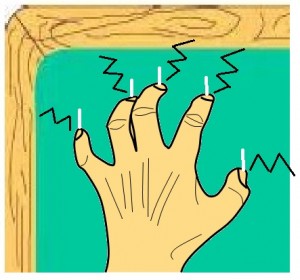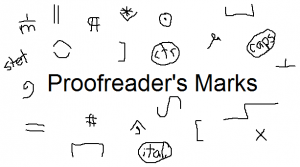 Admit it. There are some words and phrases that irritate you. Words you wish others would stop saying. Words that shouldn’t have become trendy, but did, without anyone asking your permission. Words you think should be banned.
Admit it. There are some words and phrases that irritate you. Words you wish others would stop saying. Words that shouldn’t have become trendy, but did, without anyone asking your permission. Words you think should be banned.
This blog post might cause you to think about those words in a different way.
First, what sort of words am I talking about? Some are used to fill up silence with sound, but don’t mean anything. Some occur at the beginning of sentences, others at the end. Some convey a meaning, but either the meaning is stupid, or the word’s trend has run its course. In the following sentences, the hated word is italicized:
I was actually so mad I could spit.
Anyways, that’s what I heard.
Anywhoo, I figured I’d head out to the park.
Duh.
Then I go “what?” and she goes “you heard me.”
Honestly [or To be honest], he was really mean to me.
Like, my math teacher is crazy.
When I said that, his head literally exploded.
Meh.
I know, right?
Say, are you doing okay?
See [or You see], it was like this…
So what are you doing today?
That was totally the best.
Then the, uh [or um or er], transmission thing failed and I had to pull over.
Well, I don’t know about that at all.
It was, you know, the funniest thing I ever heard.
Some of these may not bother you at all. Others may drive you toward causing great bodily harm. (My current pet peeve is starting sentences with ‘So.’) Each of us has different reactions to these words.
How is my blog post going to make you love these words? Simple. If you’re a writer of fiction, you need to understand that people really say (or used to say) these words and phrases in conversation.
For you, the words can serve several purposes. They can:
- Help distinguish one character’s speech mode from another—very helpful to a reader confronted with a long string of dialogue;
- Lend realism to your dialogue;
- Establish the historical timeframe of your story;
- Emphasize an age difference between characters, as when an older character uses “Well,” and the younger character uses “Like;” and
- Increase the hatred you (and possibly some readers) feel toward your story’s antagonist.
Let the debate rage here and there on the Internet about which is the worst word on the planet. You can even leave me a comment about your own personal, hated-word list. But you have to admit, those hated words can be useful to you.
So you’re actually starting to look at those, um, hated words in a different way, right? You’re starting to love them, aren’t you, as much as—
Poseidon’s Scribe


